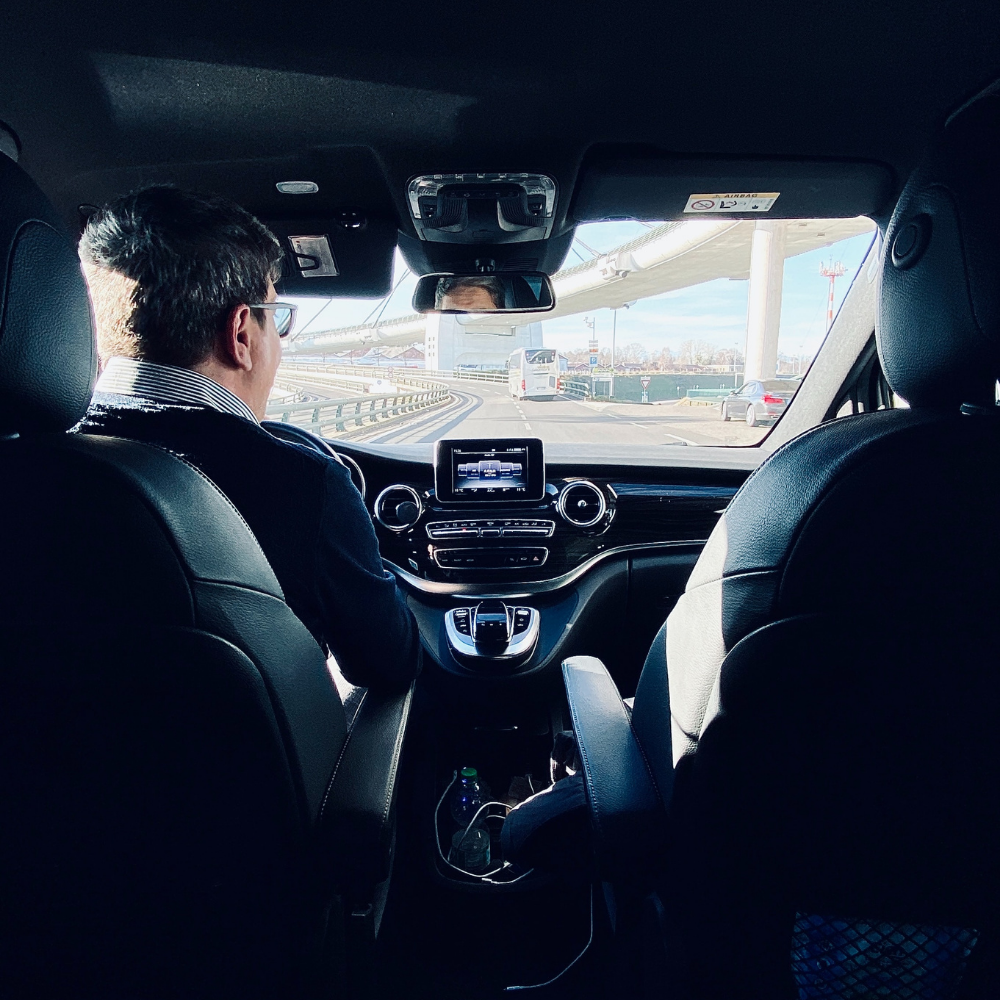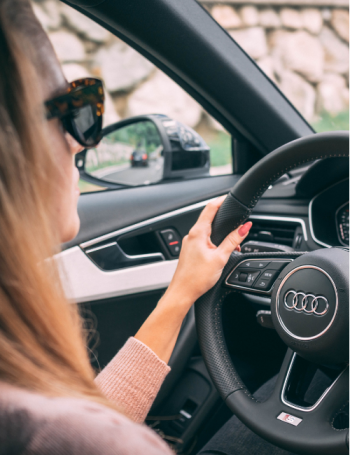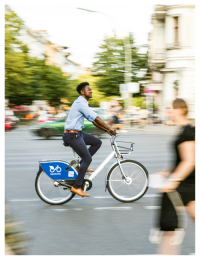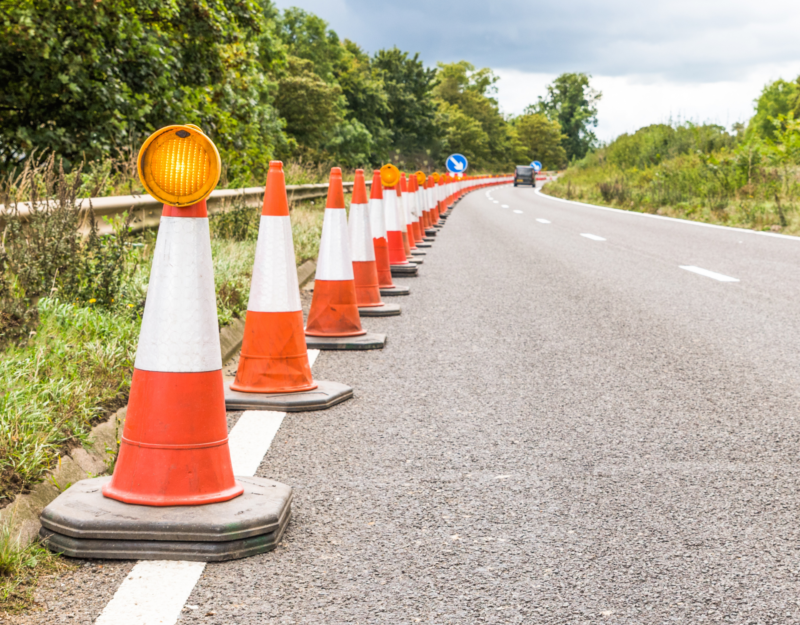Prevention of occupational road risk:
road safety at work
Occupational road risk prevention: road safety at work

More than a third of road accidents concern a journey made in the context of work; this is called occupational road risk. These road accidents have serious consequences for workers, as we will see with instructive figures, but also for the company responsible for the health and safety of its employees. The prevention of these professional road risks is the best approach to implement in a company.
The shocking figures of occupational road risk
Source of 2020 figures: Ministry of Labour, Employment and Integration
1/3
1 accident out of 3 is due to a professional journey (38% in 2020)
1st
Road risk is the leading cause of fatal accidents at work
1/3
1 in 3 occupational road accidents is fatal, i.e. 4 times more than other road accidents
356
Even if the health crisis of 2020-2021 has limited journeys on the road and thus the number of deaths (-21% in 2020), professional journeys still kill a lot (356 in 2020 against 406 in 2019)
The shocking figures of road risk in business
Occupational road risk represents the exposure of workers to road accidents.
1700
In 2016, 21 companies responded to the ministerial call for road safety at work, compared to 1,700 in 2021.
4,8
Work stoppages related to road accidents represent 4.8 million lost working days per year in France.
46
46% of VSEs-SMEs have established a right to disconnect during professional journeys to warn of the road risk of using the telephone while driving.
Chat with an expert
What are occupational road hazards?
Occupational road risk represents the exposure of workers to road accidents during work-related travel. To fully understand how occupational road risks are defined, consider two cases:
Road risk on mission
This business trip is made in the context of work: to go to a business meeting, to transport equipment, among other examples. In the event of an accident, we then speak of a mission road accident, in distinction from the road accident while traveling.
Road risk on mission
This business trip is made in the context of work: to go to a business meeting, to transport equipment, among other examples. In the event of an accident, we then speak of a mission road accident, in distinction from the road accident while traveling.


Risk factors for road accidents in the workplace
Occupational road risks depend mainly on the human factor, even if the organization of the company has its role to play. We will see the preventive actions in detail in the next section, but let's focus first on the driver's responsibility. Here again, the figures from Road Safety are telling.
Excessive speed is responsible
of 27% fatalities on the road
Occupational road risks depend mainly on the human factor, even if the organization of the company has its role to play. We will see the preventive actions in detail in the next section, but let's focus first on the driver's responsibility. Here again, the figures from Road Safety are telling.
Responsible alcohol and narcotics
many fatal accidents
23% of road deaths in 2019 were in an accident involving a drug-positive driver. Reminder from Medisur: avoid drinking alcohol before hitting the road, or else organize yourself not to drive (public transport, taxi, employee). And it's the same for other psychotropics.
The use of telephones while driving is increasing
the risk of accident by three
1 in 10 bodily accidents are linked to the use of the telephone while driving. Even with a hands-free kit, being on the phone reduces concentration on the road and endangers users. Medisur's tip for a safe professional journey: cut off telephone alerts during the journey and make stops from time to time to check your notifications. Some smartphones offer a "car" mode that deactivates alerts and sends a personalized message to the person trying to contact you.
On the motorway, 1 in 3 fatal accidents
is due to drowsiness
To doze is to fall asleep at the wheel. It is impossible to fight against drowsiness, so you have to stop urgently. The right attitude to have according to the experts. Medisur: at the first signs of fatigue, we stop at the first rest area on the motorway to take a micro-nap. The ideal is to take a break into account when planning your professional journey.

How to prevent road risks in business?
According to article L.4121-1 of the Labor Code, the employer must take “the necessary measures to ensure the safety and protect the physical and mental health of workers” (source Legifrance). Admittedly, road risk is not part of article L.4161-1, which specifically mentions the occupational risks that must be covered by the employer; however, it is no less essential in view of its seriousness. So, how to prevent road risks in business? You should know that the results of the occupational risk assessment must be recorded in the company's Single Document. It is therefore sufficient to include road risks. Road safety prevention measures at work must then be implemented in the company, such as:
Verification of professional equipment
Regularly check the condition of vehicles used for business travel, in order to prevent mechanical failures as much as possible. For those carrying heavy loads, check the maximum and actual load.
Organization of business trips
Organize the travel of workers in such a way as to reduce business trips as much as possible (use of public transport, appointments by videoconference, for example). Optimize business trips by always counting a break time in the duration of the trip. Prioritize telephone communication times excluding journeys, give employees the right to disconnect when they are on the move.
Awareness of road safety in the company
Last but not least: raise awareness among workers during prevention week on road safety in the workplace. O joy! This theme is covered every year in May by the Government. Good news: you are not alone in setting up awareness days! Medisur accompanies your company in these thematic days with animations, training, quizzes, the delivery of road prevention kits including self-tests for the detection of psychotropic drugs.
